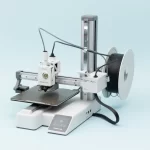Mechanical Engineering is evolving with technological advancements that are revolutionizing traditional processes and creating new opportunities. From automation to sustainability, here are 10 emerging trends in Mechanical Engineering..
1. How is 3D printing revolutionizing manufacturing in Mechanical Engineering?
3D printing, also known as additive manufacturing, is transforming the way mechanical engineers design and manufacture products. It enables the creation of complex parts with minimal material waste, reducing production costs and time. This technology is being used in industries such as automotive, aerospace, and healthcare to produce lightweight, durable components and prototypes.
2. What role does Artificial Intelligence (AI) play in Mechanical Engineering?
Artificial Intelligence (AI) is being integrated into mechanical systems to enhance automation, predictive maintenance, and optimization. AI can analyze large data sets, predict equipment failures, and improve operational efficiency. AI-driven simulations are also helping engineers in product design by testing various scenarios quickly and accurately.
3. What is the significance of automation and robotics in Mechanical Engineering?
Automation and robotics are at the forefront of modern mechanical engineering. Robots are increasingly being used in manufacturing processes for tasks like assembly, welding, and material handling. Automation is improving efficiency, reducing human error, and allowing engineers to focus on more complex, high-value tasks. Collaborative robots (cobots) are also becoming popular, working alongside humans in production environments.
4. How is Mechanical Engineering contributing to renewable energy technologies?
Mechanical engineers are playing a crucial role in developing and improving renewable energy technologies such as wind turbines, solar panels, and hydroelectric systems. Innovations in materials and design are making these systems more efficient and cost-effective. As the world shifts towards sustainable energy, mechanical engineering will continue to drive advancements in clean energy production.
5. What is the impact of advanced materials in Mechanical Engineering?
Advanced materials like composites, nanomaterials, and smart materials are pushing the boundaries of what’s possible in mechanical engineering. These materials offer superior strength, durability, and lightweight properties, making them ideal for aerospace, automotive, and biomedical applications. Smart materials, which can respond to environmental changes, are also finding applications in sensors and actuators.
6. What are digital twins, and how are they used in Mechanical Engineering?
Digital twins are virtual replicas of physical systems that allow engineers to simulate, monitor, and optimize performance in real time. By using sensors and IoT data, digital twins can predict equipment failures, reduce downtime, and improve efficiency in industries like manufacturing, transportation, and energy. This trend is helping engineers improve the design and maintenance of complex systems.
7. How is Mechanical Engineering adapting to Industry 4.0?
Industry 4.0 represents the integration of digital technologies into manufacturing and industrial processes, creating smart factories. In mechanical engineering, this trend is driving the adoption of automation, AI, IoT, and cloud computing. Mechanical systems are becoming more interconnected, allowing for real-time data analysis, predictive maintenance, and enhanced production flexibility.
8. What role does sustainable design play in modern Mechanical Engineering?
Sustainable design is becoming a priority for mechanical engineers as industries strive to reduce their environmental impact. This includes designing products that are energy-efficient, recyclable, and made from sustainable materials. Mechanical engineers are also developing systems that reduce waste, optimize resource use, and support the circular economy, contributing to long-term environmental sustainability.
9. How is Mechanical Engineering influencing the development of electric vehicles (EVs)?
Mechanical engineers are at the forefront of the electric vehicle (EV) revolution, designing more efficient electric motors, lightweight materials, and advanced cooling systems. Mechanical innovations are helping improve battery performance, range, and vehicle safety. The shift towards EVs is creating new opportunities for mechanical engineers to develop cutting-edge transportation technologies.
10. What is the importance of mechatronics in Mechanical Engineering?
Mechatronics is an interdisciplinary field that combines mechanical engineering with electronics, computer science, and control systems. Mechatronics is crucial for designing advanced machinery, robotics, and automated systems. Mechanical engineers are increasingly working with mechatronic systems to create smart devices, autonomous systems, and intelligent manufacturing processes.
Conclusion
Mechanical Engineering is evolving rapidly, influenced by technological advancements and the need for sustainability. From AI and 3D printing to renewable energy and electric vehicles, these trends are shaping the future of engineering. Staying informed about these emerging trends will help engineers and businesses stay competitive in a fast-changing industry.


